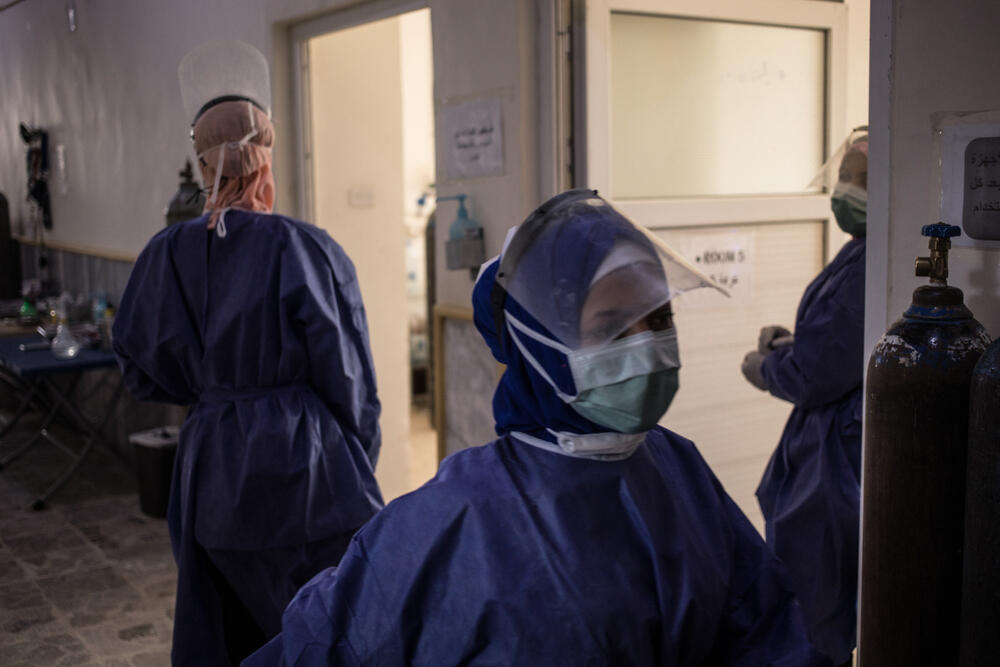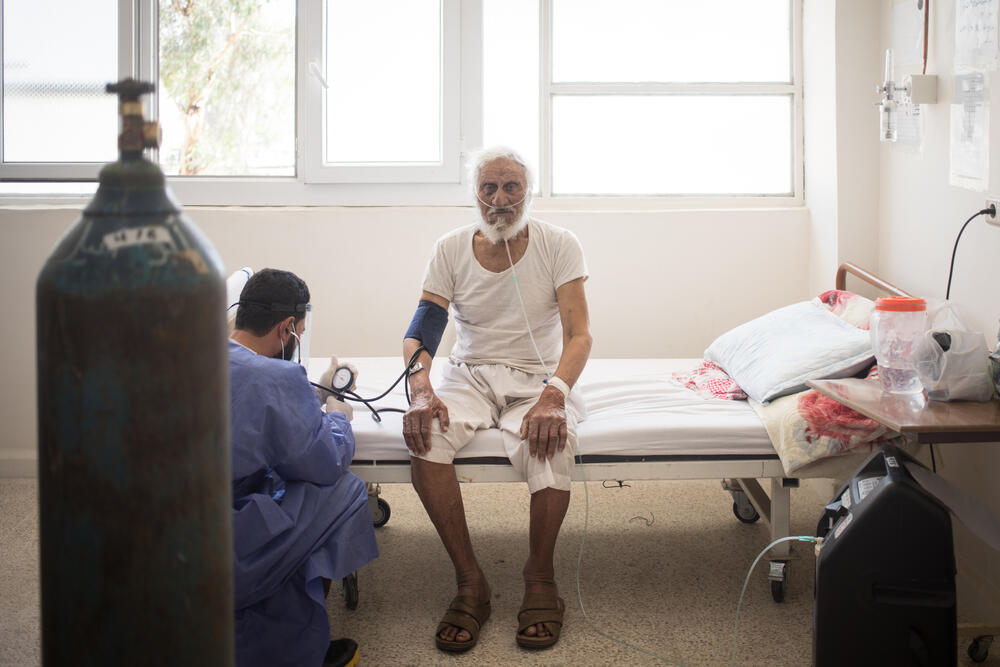Syria: Severe COVID-19 outbreak threatens to overwhelm hospitals
Northern Syria is experiencing its most severe wave of COVID-19 yet recorded, with needs fast outpacing limited oxygen supplies and healthcare facilities running out of testing kits.
In the northwest, the healthcare system is already unable to cope, while in the northeast the virus is spreading at a worrying pace according to Médecins Sans Frontières / Doctors Without Borders (MSF) teams.
Cases doubling
In northwest Syria, the number of confirmed cases of COVID-19 almost doubled in September, reaching nearly 73,000. This is compared to the 39,000 cases recorded by the end of August.
“The peak reached in this wave so far has been as high as 1,500 cases per day, while it never exceeded 600 cases per day during previous waves,” says Francisco Otero y Villar, who oversees MSF’s work in Syria.
“People in desperate need of oxygen or intensive care are stuck in queues because no beds or ventilators are available, which is leading to a higher mortality rate compared with previous waves"
Only 16 COVID-19 treatment centres out of 33 are currently functioning in this region of four million people.
At the same time, an already limited healthcare system, as well as supply issues caused by inadequate screening, make it impossible to both assess the real extent of the spread of the virus and offer an adequate response.
Efforts to contain the virus are hindered by poor access to healthcare and the low immunisation rate in the northwest. Only three percent of the community is fully vaccinated owing to people’s hesitancy to take the vaccine and a slow vaccine rollout.
“We are directly witnessing the extent of this outbreak in the facilities we manage and support,” says Villar.
“People in desperate need of oxygen or intensive care are stuck in queues because no beds or ventilators are available, which is leading to a higher mortality rate compared with previous waves.
“In Afrin, 44 percent of the patients currently admitted to a centre supported by MSF are between 16 and 40 years old, indicating that even people who were previously thought to be relatively safe from severe illness caused by the virus are being seriously impacted.”
An urgent response
MSF is trying to scale up its operations based on these increasing needs.
In August, we reopened two COVID-19 isolation centres in the Idlib region and we are now in the process of expanding their capacity. We also renewed our support to two community treatment centres in Afrin and Al-Bab and we continue to work with a treatment centre for respiratory illnesses in Afrin.
In displacement camps, where more than 13 percent of the people with confirmed COVID-19 are living, we run mobile clinics to conduct tests and distribute prevention kits for displaced people.
Low supplies
MSF has also witnessed a worrying increase of COVID-19 cases in northeast Syria over the past few weeks. In the last week of September, an average of 342 people tested positive each day: the highest daily number since the pandemic began.
However, while numbers had started to decrease in the first week of October, the only laboratory able to perform PCR tests to diagnose COVID-19 in the region is running short on materials. It now faces the possibility of halting all testing in the coming weeks if numbers do not continue to decline.
The supply of oxygen is also under serious strain, with the COVID-19 treatment facility in Hassakeh forced to source oxygen cylinders from cities including Qamishli, Raqqa and Tabqa in order to meet demand.
“In response to this new COVID-19 wave, MSF is partnering with a local organisation to care for people with suspected or confirmed COVID-19 in treatment centres in Hassakeh and Raqqa city,” said Hanna Majanen, MSF Emergency Medical Manager for Syria.

Help us prepare for the next emergency
“But our ability to source oxygen is stretched, and we are worried that if the number of positive cases increase again, or stays steady at such high rates, we will be unable to meet the demands for all patients."
A healthcare system under threat
Even prior to the pandemic, the healthcare system in northern Syria was already struggling and reliant on humanitarian aid to respond to medical needs.
Now, healthcare facilities and humanitarian organisations alike are unable to cope with the extent of this new wave. Today more than ever, efforts must be made to save these facilities from totally collapsing under the weight of the pandemic.
Support and protection for healthcare workers, provision of testing kits and oxygen, increased beds capacity in hospitals and the expansion of vaccination coverage are urgently needed in northern Syria – to both save the lives of patients with COVID-19, and keep the healthcare system functioning.
MSF in Syria
War has raged in Syria for over a decade, killing hundreds of thousands of people, displacing millions more, and causing widespread destruction and suffering.
Civilian areas have been routinely bombed and deprived of assistance, and access to healthcare remains extremely poor in many areas.
Médecins Sans Frontières/Doctors Without Borders (MSF) operates in Syria where it can, but ongoing insecurity and access constraints severely limit our activities and hamper our ability to provide humanitarian assistance that matches the scale of the needs.


